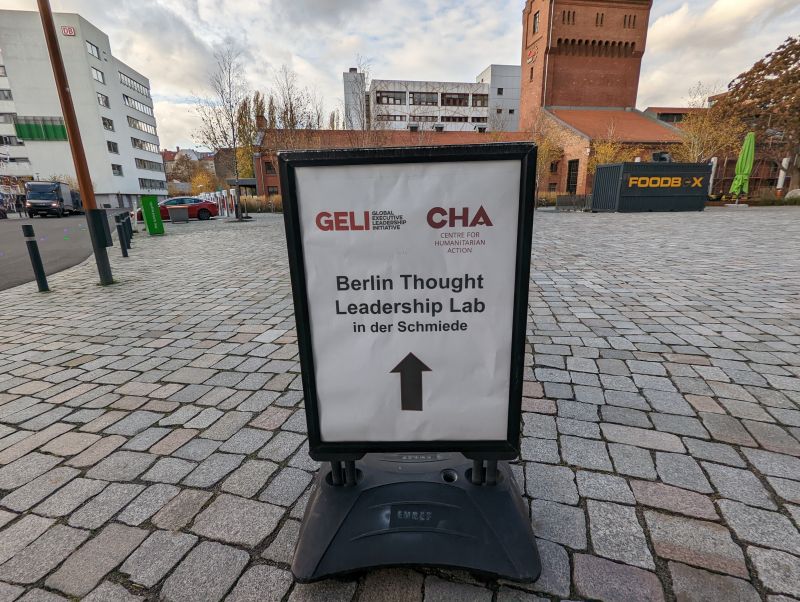When the Director and Chair of GELI asked me how I think about humanitarian leadership, I started by talking about IRC’s clients. There shouldn’t be a definition of leadership without them, and in fact I argued that any definition of leadership should start with them. Any test of leadership should be measured against their needs, aspirations and wishes. Any claim to leadership should be judged by its impact on them.
That’s one reason why, when we completed IRC’s new strategic plan last year, we spent some time rewriting our vision statement. In our organization, the mission is enduring – to help people whose lives are shattered by conflict and disaster “survive, recover and gain control of their futures”. The vision is time-limited. We focused attention on clients we serve, but also those served by the rest of the humanitarian sector, because we aspire to be part of a movement that shares ideas and promotes uptake of the best of them, and emphasized the agency of clients themselves.
We know that the biggest contribution to the life-chances of our clients comes from their own efforts, fortitude and skills. Their courage, resources, entrepreneurialism do more than any aid agency. But we also know that the link between vision and mission for organizations like IRC runs through the test of what power clients have to shape their own lives. Although our clients are often described as the victims of war and conflict, and they are in many ways victims of the abuse of power, it is the impact on their power and potential that is the test of our interventions.
We tried to reflect that in our vision statement – which is hooked to our centenary in 2033 - when we wrote: “After 100 years of service, we want the impact of our programs and the influence of our ideas to empower those caught in crisis to make lasting change in their lives”.
We are trying to make “clients at the center” more than a slogan. For example we aim for our expertise – for example comparative evidence from forty countries embodied in our Outcomes and Evidence Framework – to join with the expertise of clients and community organizations around the world to achieve the greatest real world impact. We have five priorities to make this more of a reality.
We want to increase our impact by raising the quality of our programs. This means giving our clients greater influence over program design and delivery to ensure our work meets what they think they need not just what aid agencies thinks they need. For example in Libya we’ve worked closely with youth activists to design programs to support their vision for bringing more young people into Libya’s governance conversations.
We want to increase our scale by reaching more people. This means working more with local partners, asking clients for their guidance on how to ensure that our programs aren’t just changing individual lives, but changing whole communities. For example, in the Za’atari refugee camp in Jordan we are working with Syrian refugees to develop with us a Covid vaccine outreach campaign to address the specific concerns among refugees living in the camp.
We pledge to empower our people by strengthening our teams and living up to our values in the way we recruit, promote and treat our colleagues and the way we serve our clients. This means building an organization that is a more supportive, inspiring place to work by ensuring our workforce is more representative of the places we work and the people we serve. For example in Pakistan, we are one of the few organizations working there to hire members of the transgender community in the country which allows us to develop protection and community support programming for LGBTQ+ clients that meet their unique needs. We want our commitment to diversity, equality and inclusion to speak to all the places we work.
We want to use our influence by innovating and improving humanitarian response worldwide. This means sharing our best ideas and raising our voice to improve the lives of all people affected by crisis. For instance our pioneering work on acute malnutrition among children is in part based on the idea that community health workers – often displaced or marginalized clients themselves – are the key to early diagnosis and expanded treatment in fragile and conflict-affected communities around the world.
We want to improve the flexibility, stability and diversity of our funding. This means ensuring our clients, partners and the communities where we work have the resources necessary to respond to needs not just today, but also tomorrow even amid changing circumstances. This means working as equals with partners, community-based organizations, and clients in every single country where we operate as we develop annual priorities and allocate budgets. It means that more money goes directly into the hands of partners, clients and frontline programs.
We try to build leadership at all levels – leading from the front-line where our clients live (rather than “leading from the front”). But leadership is not a technical exercise. It needs purpose. That’s why we all come to work each day.






